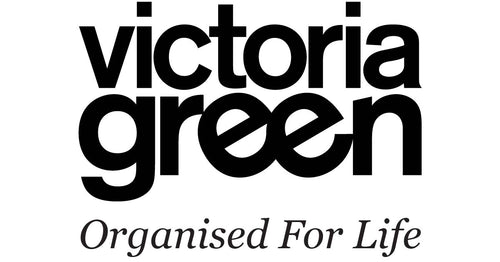I’m writing this post feeling tearful, overwhelmed and stressed. The combination of the lockdown announcement, tiredness from a half-term visiting relatives and a long task list, both at work and at home has got to me. I know all about stress management and how to be organised, but I feel like I’ve lost control.
I’ve suffered from depression in the past and I know there is a massive difference between temporary feelings of overwhelm, stress and anxiety, and actual depression. I’m definitely talking about the former here – a temporary emotional state which is usually brought on when I’m very tired and I’ve a lot on my mind. Over the years I’ve learned how to be organised and I know this feeling of overwhelm can be solved by some simple stress management techniques. It absolutely goes without saying that if you’re experiencing persistent symptoms of anxiety or stress you must get professional help.
However, even if you know deep down that what you’re experiencing is temporary and manageable, at that moment it can still feel all-consuming, as if you’ve lost control and don’t know how to organise your life. I know if I’m not careful I start to act irrationally, snapping at my partner and shouting at my kids, which makes me feel guilty and lonely on top of everything else.
So, how to reduce stress? To be honest I always feel shocked at how little it takes to tip me over into feelings of being overwhelmed. Because of my experience of depression, I’ve learned to spot the signs very quickly and I’ve developed the following 10-point stress-busting strategy to lift my mood. It’s simple, effective, takes very little time, doesn’t require any specialist equipment, and is backed up by actual neuroscience, so read on if you want to learn how to reduce stress, how to organise your life and have a calmer mind…
- As soon as you recognise those feelings of overwhelm and stress, STOP WHAT YOU’RE DOING, find a quiet space away from the rest of your family, and write down how you’re feeling and why, in a notebook or diary. This is my number one tool for stress management. All you need is around 30 minutes to yourself, a pen and a piece of paper. It’s been proven in numerous scientific studies on how to reduce stress, that the physical act of writing down our feelings can improve mood and boost feelings of wellbeing. Don’t worry about spelling or grammar – just spend 30 minutes scribbling it all down. Next, spend 5 minutes noting anything physical that could be aggravating your emotional state. For example, if I haven’t been sleeping well, or I have a bad back it makes me feel particularly cranky. I find that simply acknowledging those physical symptoms in my notebook or planner instantly improves my frame of mind and is the first step on the road to stress management.
- Once you’ve acknowledged how you’re feeling, and you’re in a calmer state of mind, you can move on to tackling the practicalities of stress management. I start by downloading the contents of my brain into a catch-all task list - I write down every single thing I have to do, no matter how small or seemingly insignificant – I try to capture every single tiny thing. It doesn’t matter if it’s work or home-related, if it’s on my mind it goes on the task list. According to neuroscientist Dr Daniel Levitin, author of ‘The Organized Mind’ ‘writing things down conserves the mental energy expended in worrying that you might forget something and in trying not to forget it’
- If I have a specific big project, for example organising Christmas tasks, I write it down separately from my task list and break it down into a series of small actions. This is such an essential element of learning how to organise your life, as you can then look at what you can do today or this week, to make you feel like you’re progressing. Add all the actions to your ‘brain download’ task list.
- Now you have your task list, if there’s anything you’ve highlighted that will take 2 minutes and make you feel instantly better, for example make a quick appointment or reply to an urgent text, just get it done at that point - then you can return to your task list feeling immediately calmer. Don’t get distracted though – being disciplined about how you use your time is crucial in understanding how to organise your life.
- You should now have a long list of jobs. Now, and this is a really important part of stress management - I want you to go through the task list and identify as many actions you can delegate or delete as possible. Is there anything a family member, partner or friend can help you with? You don’t have to do this alone, so dole out those jobs! An important part of stress management is to learn to recognise whether there’s anything you’re stressing about which just doesn’t matter? Could you postpone an engagement or renege on a commitment to give you a bit more time? As your stress management advisor, I’m officially giving you permission to do this, because nothing is worth feeling this stressed for. Use a highlighter on your task list divide your tasks into categories, pink for the most urgent, green for those you can delegate, yellow for the least urgent. Cross out those deleted tasks – See? Feeling better already!
- Okay, so now you should have a task list of important jobs that only you can do. You’re well on your way to learning how to be organised – Now, a vital part of stress management, is scheduling. As Dr Levitin so wisely puts it, ‘get it out of your head, write it down, then prioritize things’ Take your planner – it doesn’t matter whether it’s a digital calendar or paper diary, whatever works for you - and plot when you’re going to complete each task. Be realistic - A key part of learning how to organise your life is being sensible about how long things will take to complete. Even though I think I know how to be organised, I often give myself too little time to finish a job and end up even more stressed than before!
- Flexibility is also an essential stress management tactic. Some of the actions on your task list might just take a little longer, you might get interrupted, or there may be more steps in the process that you had anticipated at the outset. If this happens, it’s okay – a chief part of learning how to organise your life is developing systems for when things go awry. If you start to feel overwhelmed again you can repeat steps 1 – 6, or you may just want to go back to your calendar and juggle the jobs around on your task list. For me, effective stress management is just feeling like I’m on top of things. So long as I’ve got my tasks scheduled it makes me feel calmer and more in control.
- You will have paperwork attached to some of the jobs on your task list – maybe a quote from a tradesperson, a receipt if you need to take something back to the shop, or a letter from school. I have a particular hatred for paper clutter, and I think developing effective filing systems are an essential part of learning how to organise your life. This is backed up by the neuroscientist Dr Levitin, who says, ‘clutter produces cortisol, particularly in women, who tend to be more susceptible to clutter-induced stress’ Part of my stress management technique involves filing every piece of paper which comes into the house – I have 2 concertina files, one with 31 sections for each day of the month, and one with 12 sections for each month of the year. I file the paper in the section relating to the day I’m planning to complete the task. If it’s further ahead I just pop it into the corresponding month. I then add a note to my diary to remind myself where it is, so when the task pops up in my weekly planner, I automatically have the relevant piece of paper to hand. When you’ve finished with your piece of paper and no longer need it, put it straight into the recycling bin.
- If you want to really get to grips with knowing how to organise your life, you will need to get into some good stress management routines - Get into the habit of checking your planner or calendar every day to see if there are any tasks to complete. To make this into a daily stress-busting habit, try to do it at the same time each day, perhaps you could reinforce your new stress management routine by combining it with your with your morning cup of coffee or evening cocoa? The more pleasant you can make it, the more likely you are to continue with it.
- Once you’ve discovered the techniques of how to organise your life more effectively, it’s good to go back and read what you wrote at the beginning of the process. This is to reinforce the idea that however overwhelmed you’re feeling, you have a stress management strategy to cope, and those out-of-control feelings will pass. Hopefully next time you’re feeling that way you’ll be quicker to recognise the signs, you’ll know exactly how to reduce stress, and you’ll be able to spring into action before you start to feel too overwhelmed. It's also important to read through the list of physical triggers you wrote down at the beginning and be honest with yourself - did you reach that emotional state because you’re tired or you have a hangover? Do you have a physical symptom, like back pain, that you haven’t dealt with? Is there something you’re worried about that you haven’t addressed? Part of learning how to organise your life and creating a powerful stress management strategy, is recognising and addressing these issues. Write a list of things that are within your power to make yourself feel physically better, prioritise them and take action. You might be able to plan a few early nights and/or have a few alcohol-free days. If you’re not sleeping well maybe you could try to get a bit more exercise and fresh air during the day to help you drift off more easily. If you have some low-level pain, you could make an appointment with the physio or doctor. Just identifying the triggers and recognising they are within my control can sometimes be enough to make me feel better.
Voila! - You should now be feeling calm, in control, and armed with a stress management strategy that you can action anywhere. As long as you have a pen and paper and access to your diary or planner you now know how to reduce stress and make yourself feel better.
Remember, even though I know how to be organised and how to reduce stress, there are still times, like I described at the beginning, when I feel overwhelmed. It’s really important to be kind to yourself and know it’s okay if you fall out of your good stress management habits from time to time, you can always pick them back up, so give yourself a break!
Learning how to organise your life is an ever-evolving process. I’m always picking up stress management tips from reading books or magazines or talking to my friends - I would genuinely love to hear from you if you have any advice on how to reduce stress and I’m always looking for more ideas on how to be organised, so I would love to hear from you if you have any ideas!

